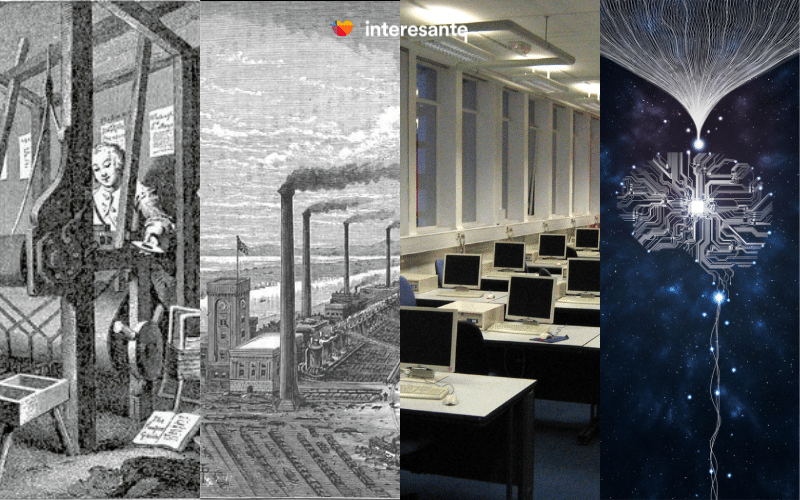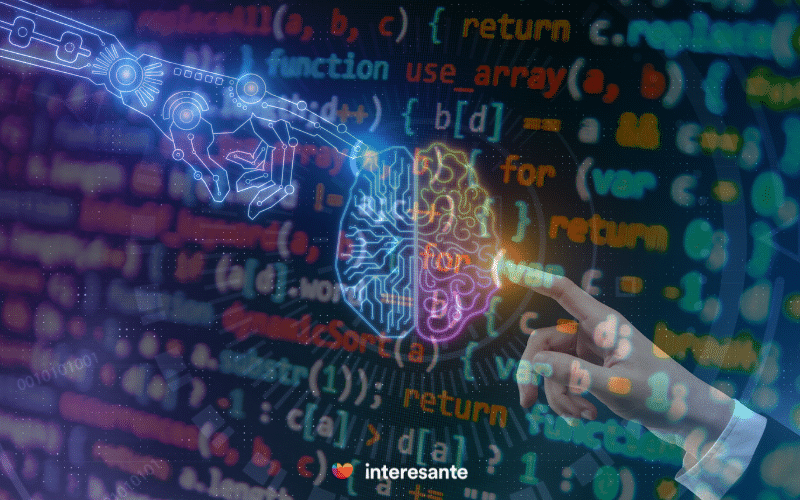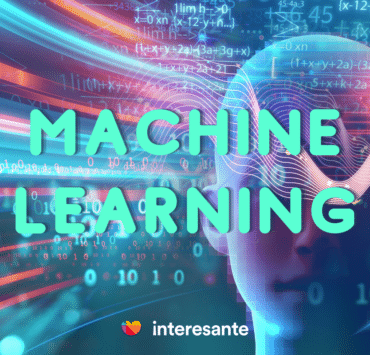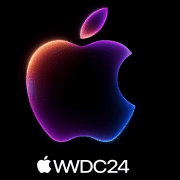Informático con vocación para compartir el conocimiento.
Editora, literata, feminista, divulgadora de ideas...
We now live in Revolution 4.0, which implies an accelerated advance towards digitalization. Technology has had a notable impact in all areas, and today we can say that the future of work is digital. That is to say, the jobs that will be most successful and in demand in the coming years are related to very diverse areas, but with technology as a priority. For example, digital marketing, Artificial Intelligence, Data Science, software development and implementation, blockchain, and cryptocurrencies.
Revolution 4.0: Technology and Digitalization in the Workplace
The so-called Revolution 4.0 refers to the accelerated technological development we are experiencing today. Since the Industrial Revolution in the 18th century, technology has developed at an accelerated pace.
From the invention of the first power loom to the current technological development, more than two centuries and countless innovations and scientific breakthroughs have passed. This period of industrial revolutions has four phases. Each involves implementing new technologies and processes to manufacture mass consumer goods.
We are currently experiencing Revolution 4.0 based on interconnectivity, automation, automatic learning, and real-time transmission of data generated in these processes. Technologies such as Big Data & Analytics, Data Science, Artificial Intelligence, Search Engine Optimization, augmented reality, 3D additive manufacturing, simulation, cyber-physical systems, robotics, cloud computing, blockchain, among others, predominate.

Digital Marketing and Contents
For marketing to be successful, it must be digital and, above all, diversified in content. More and more people have a smartphone, and when they want to buy something, they check Google and social networks for information. In other words, potential customers consume various content before making a decision.
Therefore, it is essential to communicate the benefits of a product convincingly and straightforwardly, so a professional in content production is necessary. Three jobs are the most sought after in this area: SEO Specialist, Community Manager, and Growth Hacking Manager. The studies that lead you to this career path are usually the following:
- Digital Marketing
- Journalism
- Communications
- Advertising
- Literature
1. SEO Specialists
Knowledge of Search Engine Optimization allows them to position content organically in Google and other search engines. This position requires the use of tools such as Semrush or Ahrefs. They enable understanding the trends that most circulate on the Internet-based on keywords, queries, or questions.

The SEO specialists must also know how to run link-building campaigns to weave a network with links to other sites to rank. Likewise, they need to handle platforms to generate and manage content, such as WordPress.
Regarding studies in this area, there are postgraduate degrees and certifications in SEO to fully master the ability to position content organically.
2. Community Manager
Nowadays, companies need to have a website to share their services and products. In addition to that, it is also essential that they have active social networks. Marketing focuses on generating community, as it is more effective to maintain customers by establishing an organic interest in a product.
The Community Manager carries out this task; they are in charge of generating and managing a community in a company’s social networks through content strategies. There are Masters in Social Media and Community Manager that give tools to be an expert.
3. Growth Hacking Manager
They are in charge of growing a brand, for which they must organize complex digital marketing campaigns and projects. A Growth Hacking Manager can generate viral content by analyzing user behavior on social networks. Their goal is to achieve conversion, that is, that customers buy a product or click on certain content.
They have three guidelines: experimentation, retention, and scalability. They must be changing methodologies according to trends and the intentions of the scientific method. Not only that, but they also seek to generate engagement with customers and project their reach broadly through technology.
Studies in Project Managing and Digital Marketing favor expertise in this area.
Artificial Intelligence as a Guideline
A.I. simulates human processes such as learning, reasoning, and self-correction. It consists of software based on mathematical algorithms that run on hardware such as smartphones, video cameras, or industrial machines. It offers multiple benefits through data collection and deep analysis.
According to PwC, by 2030, AI will have contributed to 14% growth in global GDP.
The most requested profiles for working with A.I. are science and technology, mainly working with code and data. The most sought-after positions are programmers, developers, data scientists, and predictive analytics specialists. As for the careers that will lead you to this professional area, the following stand out:
- Computer Engineering
- Mathematical engineering
- Information Systems
- Industrial engineering
- Telecommunications engineering
- Physics
4. Programmers
Many companies currently require programmers. They are the ones who work the code and give concreteness to the ideas requested by their Product Managers, either as backend or frontend. They develop applications or platforms for commercial or recreational use and maintain them. That is to give follow-up and solutions to the users’ errors.
If you decide to dedicate yourself to this, you will have no problem finding a job. However, it is also true that it is a very competitive area. It is therefore advisable to choose a programming language in which to specialize, for example:
- Java Script
- Java
- Python
- HTML
- HML
- C#
- C/C++
- CSS
- R
- Objective-C
- Swift
- PHP
- Matlab
5. Developers
We have said that programmers «develop» applications or platforms, so is it the same as developers? The answer is no because they are positions with different responsibilities. A developer can also act as a programmer, but not the other way around.
That means that the developer has more responsibilities, so they will generally have to delegate the work with the code to a programmer. Developers have greater visibility of development projects, as they are involved in aspects such as design, implementation, documentation, among other things. So their profile should be the same as that of a programmer, but they also need management skills.

Data Science, Big Data & Analytics and its Relationship with AI
Data Science and Big Data & Analytics are closely linked to A.I., as they make it possible. In other words, to program artificial intelligence systems, it is mandatory to review and analyze data thoroughly. However, this is not the only area of application of data science. On the contrary, it is a transversal discipline in the business and industrial world because nowadays, technology and computational systems relate to all fields.
Both Data Science and Big Data & Analytics are developing professions, so there are no careers in those disciplines. However, many universities already offer postgraduate degrees in such areas. The following are the academic studies that guide these objectives:
- Statistics
- Mathematics
- Computer Science
- Actuarial Science
- Business Engineering
6. Data Scientist
Given the vast generation of information provided by computational systems, this discipline has emerged from analyzing and interpreting large-scale data. Lately, we have heard a lot about data scientists. However, the Danish scientist Peter Naur named this discipline in 1974 in the book Concise Survey of Computer Methods.
Data scientists apply technical analysis to databases and thus take advantage of the sea of information to achieve specific objectives. They are in charge of designing and implementing mathematical algorithms generated from statistics. Also, they apply machine learning and other methodologies to make better decisions.
This profession requires different skills. For example, managing distributed storage systems, managing SQL or PL/SQL databases, programming, and others.
7. Predictive Analytics Specialist
More and more companies are becoming aware of the importance of making intelligent use of resources, and technology can help in this regard. That is why it is crucial to collect information on a large scale and have the ability to interpret it.
According to the International Data Corporation (I.D.C.), in 2020, each human being generated approximately 1.7 megabytes, which gives a total of almost 40 trillion gigabytes. The numbers are unimaginable; they suggest themselves as a cosmos of information. However, they can be analyzed and interpreted by a predictive analytics specialist or Big Data analyst.
Big Data & Analytics is a branch of Data Science characterized by handling colossal amounts of information: big data, which requires different analysis techniques in each case.

Digitalization of Companies
Software plays a vital role in the industry, as it is present in virtually any context that applies technology. Software is a system that processes, interprets, and displays data to accomplish a specific task. In this way, the integration of production chains is possible. Here are some of the most demanded positions when a company undertakes its digitization.
8. Digital Project Manager
When a company undertakes its digitalization, it requires people who can implement a whole technology system. A Digital Project Manager undertakes the task of digitally transforming a company. Beforehand, they must know about business management and the technical development of online products.
Their tasks include managing budgets, identifying risks, applying innovation and efficient methodologies, and managing teams, among others. Their academic background includes careers or certifications such as the following:
- Digital Business
- MBA with focus on Digital Project Management
- Digital Marketing
9. Software Engineer
The digital transformation of business also requires software engineers who can implement systems to streamline and improve processes. These are professionals who know about the life cycle and implementation of systems. They can handle various programming languages, so their skills also allow them to be programmers or developers. The difference is that engineers also analyze a problem and its solution from the design, implementation, and follow-up.
A common metaphor for understanding the difference between the two is cooking. Many people know how to cook, but few could manage a banquet for hundreds or thousands of people.
The World of Cryptocurrencies and Blockchain Protocols
Blockchain is a tool that allows generating protocols for the exchange of information securely and without intermediaries. Such protocols work with native tokens that are known as cryptocurrencies. Its use has spread widely in recent years, and despite its volatility, its presence will not dissipate. They are gaining more and more legitimacy as alternative economies, despite the skepticism of the more traditionalists.
10. Blockchain Developer
Among other things, cryptocurrencies enable decentralization and solve the central problem of international transactions. Ecosystems such as Polkadot and Cosmos are interconnecting blockchains to build even more decentralized and secure applications.
There is a whole, very dynamic industry of blockchain protocol development. In this industry, senior developers to deal with high-level protocols are mostly needed. They need to know cryptography security, follow an agile development methodology, and, above all, bring cryptography to a product.
These profiles must know about object-oriented development. The most suitable are developers who master programming languages such as JavaScript, Java, C++, Solidity, and others. These profiles earn very well because many people are still unaware of blockchain, although it is a competitive industry.
Be a part of the Revolution 4.0
The Revolution 4.0 has improved industrial and business processes and made them wiser, which opens up a range of possibilities for professionals. Today it is required to complement existing skills with new technological knowledge such as Big Data, Artificial Intelligence, or blockchain.
In this case, we present different professional areas that currently offer jobs increasingly in demand. However, the skills of these profiles allow you to perform in other disciplines, so the areas of application are even broader.
What's Your Reaction?
Informático con vocación para compartir el conocimiento.














